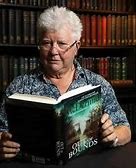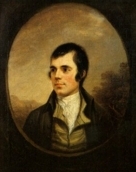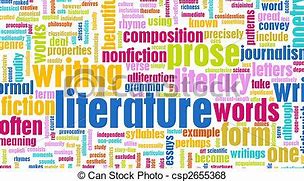day 2 of 5 of our inaugural annual not literally a literary festival of JoinedUpReadingAndWriting. READING AND WRITING A NOT SO STILL LIFE
day 2 of 5 of our inaugural annual not literally a literary festival of JoinedUpReadingAndWriting.
READING AND WRITING A NOT SO STILL LIFE
by Norman Warwick

Hush !! I´m trying to figure out what´s going on here. That is definitely Val McDermid sitting over there, (on the left) talking to a journalist. I´ve been listening in for a couple of minutes, thinking I might learn something about writing, but Val keeps on chatting and chatting, about working in a newsroom in the seventies, coping with today´s lockdowns and the transformation of attitudes to gay couples in Scotland. All very interesting, but NOTHING to do with writing.
I mean Val McDermid is 65, and, yes I know she is still younger than I am, but there must be much I could learn from her. You know she is sometimes referred to as the queen of crime, and her triumphantly Scottish oeuvre is dubbed ´tartan noir´! She has written four series, the best-known featuring clinical psychologist Dr Tony Hill.

Wasn´t it Robson Green who used to play him in the the series they made on the telly? He played Dr Tony Hill, a clinical psychologist with empathy beyond the established boundaries of his science in Wire in the Blood you know he was all. Intelligent and compassionate, Its funny, though, I didn´t think he looked a bit like I had seem in the books. Maybe she hadn´t described him very well but she´s sold more than 16m novels and been translated into forty languages, so she´s had plenty of practive. Her latest, Still Life, is out now in paperback.
I´ve read others of hers, and this one has been described as ´an effortlessly gripping read´. See, ´effortless´.
I´ve always thought writing is supposed to be easy so I must be doing something wrong, because I always find it bloody hard work.
Quiet, quiet, The reporter has just asked her why is it we relish violent crime in fiction that we would be appalled to encounter in real life? Let´s listen in on the rest of the conversation,…sssh! Val´s answering the question.
´Watching lightning strike in somebody else’s house can be almost talismanic – seeing off the possibility of evil in your own life. It can be comforting reading crime novels where endings offer resolution. I don’t mean that everything gets tied up with a neat little bow as in Agatha Christie novels – there are more flexible, open endings now – but something gets resolved´.
Part of the pleasure of Still Life is in its Scottishness. How important is being Scottish to you?

photo 3 ´I grew up in Fife, in a working-class environment – a totally different cultural background to people brought up in England. This might sound weird but when I went off to Oxford at 17, I felt I was in exile. I’m a supporter of Scottish independence – an appropriate subject, as you and I are talking on Burns Night. My dad was a great Burns man, a member of Bowhill People’s Burns Club – he was a lead tenor in their concert party´.
You introduce a garnish of Scots into Still Life – I learned thrawn means contrary and gallus cheeky. Which are you?
´I have both attributes. It’s the base level you start from as a Fifer: you have to be a wee bit gallus to get away with being thrawn´.
Women have a pretty high-handed attitude to men in your book – like old-style men but worse. Your detective Karen Pirie says of her boyfriend: “Time to put Hamish back in his box and concentrate on work.” There must be huge enjoyment in turning the tables?
´There is – although “That’s you back in your box” is a Scottish idiom. More seriously, though, I wanted to deal with the relationship between the classes [Karen is working class, Hamish privileged middle]. It is potentially treacherous and full of conflict´.
You write brilliantly in your books about what your characters like to eat and, during lockdown, you made a hilarious YouTube video instructing us on how to make “Hamish’s hipster porridge”. You are rude about his pretentious porridge in the book, but I suspect you of loving it in real life?
´Absolutely! My porridge is close to Hamish’s porridge. My partner [Jo Sharp, a professor at St Andrews] is responsible for the line: “How can you have porridge where oats are a minority ingredient?´
Karen Pirie, meanwhile, is a caffeine fiend. What’s your pick-me-up of choice?
´I don’t think I’ve ever written a sensible sentence without two cups of coffee´
Karen implies in the book that lesbianism is now mainstream in Scotland. You live in Edinburgh, but isn’t acceptance more patchy than she suggests?
´It could still be hard to be openly gay in a small Scottish village but the attitude towards gay couples has transformed. When I came back to Scotland in 2014, it was clear the country I was coming back to was not the one I left. I started my career in 1977 as a journalist in Glasgow and the misogyny, fear and sectarianism in the newsroom at the Daily Record was staggering. It was only six months before I arrived that it was agreed women could wear trousers in the office and do night shifts. To survive, you had to be twice as good as the guys´.

In the novel, you describe Boris Johnson (right) as someone whose only experience of poverty lies in a “lack of imagination and compassion”. And you refer gloomily to Brexit.
´I want my books to have authenticity, a sense of time and space. I get accused of being political but all fiction has a political stance´.
When did you add the Covid references?
´I started writing in January when there was no sign anything was coming, but the latter part was written in lockdown. I wanted the novel to reflect a gradual realisation … I’m now writing a novel set in 1979. I need to be on solid ground. The present is like quicksand´.
You reveal in your acknowledgments you found/find lockdown hard?
´I feel guilty at having a relatively straightforward time. I’m lucky: my partner is also my best friend, so being in lockdown is not an enormous hardship. And I don’t have small children – my son is at university and I’m in one of the few jobs where my income has not been adversely affected by coronavirus. However, we all have that low-level thrum of anxiety which brings you down. I realised I was missing conversations with friends doing creative work, so a couple of times a week I tramp round – usually the Edinburgh cemeteries – with them´.
What kind of reader were you as a child?
´Voracious. We lived opposite the central library and I read my way around the shelves. And because it was Scotland in the 1960s, although you could take out four books, two had to be nonfiction´.
Which genres do you enjoy most now?
´I try not to read by genre. I’ve recently been reading literary nonfiction (Hidden Nature by Alys Fowler), a crime novel (Miss Pym Disposes by Josephine Tey) and a dystopian science fiction novel (Radio Life by Derek B Miller). I enjoyed all of them.´
Your best lockdown read?
´Ali Smith’s Summer. She’s the great writer of hope and imagination of our time´.
What’s on your bedside table now?
´When I Was Ten by Fiona Cummins´.
Your favourite fictional heroine?
´Sara Paretsky’s VI Warshawski. She made me understand there was a different way to write crime fiction. Her protagonist had a brain, a sense of humour, agency´.
What’s the best book you’ve been given as a present?

´A friend gave me Kate Millett’s Sexual Politics when I was an undergraduate. She said: “This will change your life,” and, by God, it did´.
I´m pretty sure that journalist was from The Guardian. I know they reviewed the book recently, saying it was published by Little, Brown for £8.99. I´m sure it said I could order it from guardianbookshop.com, but delivery charges would apply. Or I could nip into the bookshop and just ask for Still Life by Val McDermid.
Still not sure if I have learned anything about how to write, though. I mean Val McDermid is obviously interested in lots of things, but she hardly talked about writing? In fact, I think she probably talked more about reading. I mean what could I possibly learn from that ? What do reading and writing have to do with each other?
sources: The Guardian

It has been great to have enjoyed the company of our readers throughout the second day of our JoinedUpReadngAndWriting Festival and we´ll see you all early tomorrow morning. There might not be as long a walk, this time, though and we promise you will be able to stay right where you are and write. On hand to advise and to tell us about a clutch of new poetry initiatives will be Carol Ann Duffy and several more of the nation´s leading poets.




Leave a Reply
Want to join the discussion?Feel free to contribute!